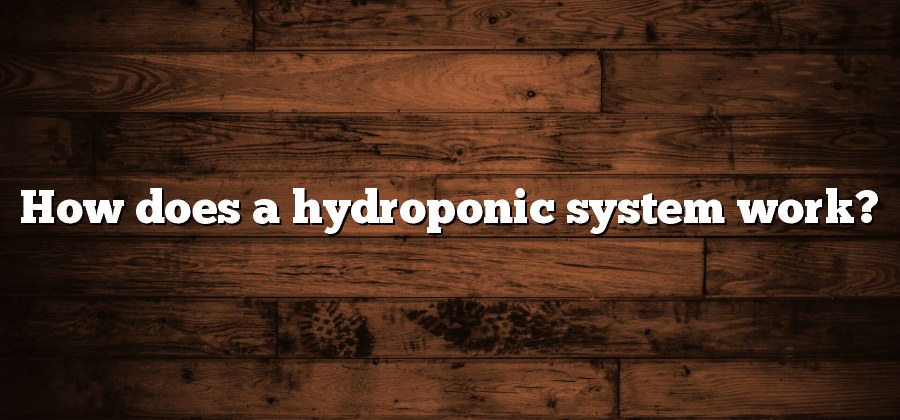Reservoir
The reservoir is a critical component of any hydroponic system. It serves as a container for the nutrient solution, which is the lifeblood of the plants. The size of the reservoir will depend on the number and size of the plants being grown. It is important to choose a reservoir that is large enough to hold an adequate amount of nutrient solution to sustain the plants between refills.
When selecting a reservoir, it is essential to consider its material and durability. Most reservoirs are made of plastic, which is lightweight and easy to clean. However, it is crucial to choose a reservoir that is food-safe to ensure that no harmful chemicals leach into the nutrient solution, potentially harming the plants. Additionally, a reservoir with a lid is highly recommended to prevent the growth of algae and to maintain the cleanliness of the nutrient solution. Proper maintenance and regular checks are necessary to ensure that the reservoir remains in optimal condition for the healthy growth of the plants.
Nutrient Solution
One of the key components in hydroponic gardening is the nutrient solution. This specially formulated solution provides the necessary minerals and nutrients for healthy plant growth. Unlike traditional soil-based gardening, where plants extract nutrients from the soil, in hydroponics, everything the plants need is dissolved directly in the water. This ensures that the plants receive a balanced and consistent supply of essential elements, allowing them to thrive and produce quality crops.
The nutrient solution typically contains a combination of macronutrients and micronutrients, including nitrogen, phosphorus, potassium, calcium, magnesium, and various trace elements. These nutrients are dissolved in water and are readily available for uptake by the plants’ roots. The composition of the nutrient solution can vary depending on the specific needs of different plant species and growth stages. pH levels also play a crucial role in hydroponics, as the nutrient solution needs to be maintained within a specific range to maximize nutrient availability to the plants. Regular monitoring and adjustment ensure that the plants are receiving the optimum nutrient solution for their growth and development.
Growing Medium
When it comes to indoor gardening, selecting the right growing medium is a crucial factor in ensuring successful plant growth. The growing medium, or substrate, serves as the foundation for your plants to thrive and anchor their roots. It is essential to choose a growing medium that provides adequate aeration, drainage, and water retention capabilities.
One popular choice for indoor gardening is coco coir. Coco coir is derived from the fibrous husk of coconuts and is a sustainable alternative to traditional soil. It has excellent water retention properties, allowing plants to access moisture as needed. Additionally, coco coir provides good aeration, preventing over-saturation of roots and promoting healthy oxygen flow. It is also naturally pathogen-free, reducing the risk of disease in your plants. Another benefit of coco coir is its ability to be reused, making it a cost-effective and environmentally friendly option for indoor gardeners.
Water Pump
The water pump is an essential component of a hydroponic system. Its main purpose is to circulate and deliver the nutrient solution to the plants. The pump works by drawing the nutrient solution from the reservoir and moving it through the irrigation system. This ensures that the plants receive a consistent supply of nutrients and water for optimal growth.
When selecting a water pump for your hydroponic setup, it is important to consider factors such as flow rate, power consumption, and noise level. A pump with a higher flow rate is preferable as it can deliver a larger volume of nutrient solution to the plants. Power consumption should also be taken into account to ensure efficient operation and minimize energy costs. Additionally, a quiet pump is desirable to avoid any disruptions or disturbances in the growing environment. Investing in a reliable and high-quality water pump is crucial for the success of your hydroponic system.
Air Pump
The air pump is a crucial component in hydroponic systems as it provides vital oxygen to the root zone. Its primary function is to create a steady flow of air bubbles within the nutrient solution, ensuring that the roots receive the necessary oxygen for optimal growth. By constantly circulating the nutrient solution and introducing oxygen, the air pump helps to prevent the development of stagnant water, which may lead to root rot and poor nutrient uptake.
In selecting the right air pump for your hydroponic system, several factors should be considered. Firstly, it is important to choose a pump with sufficient power to effectively aerate the nutrient solution in your specific setup. The size and volume of your reservoir, as well as the number of plants, will determine the appropriate level of air output required. Secondly, noise levels should be taken into account, especially if the system is operating in a residential or office environment. Opting for a quiet air pump can help minimize disruptions and maintain a peaceful growing space. Lastly, durability and energy efficiency should also be considered to ensure long-term usage and cost-effectiveness.






